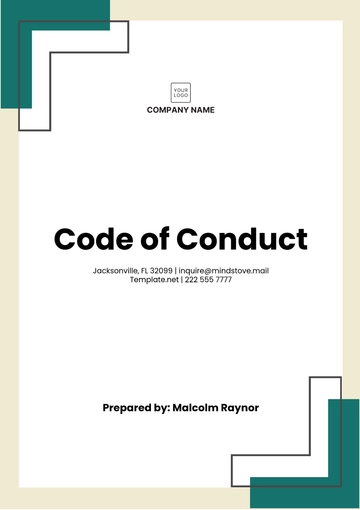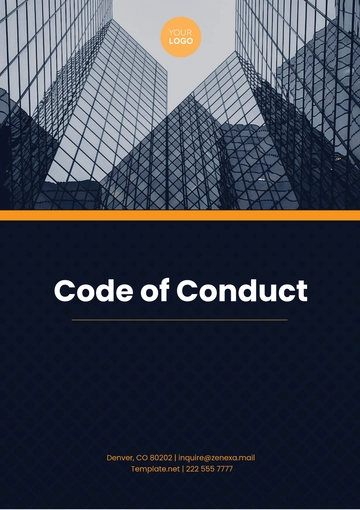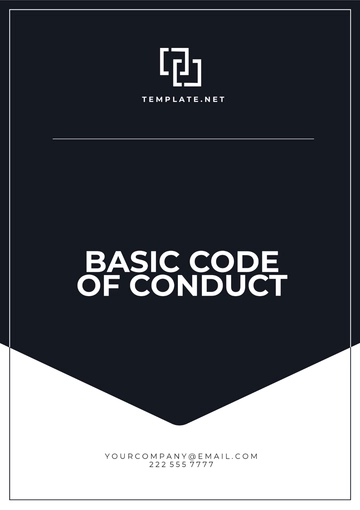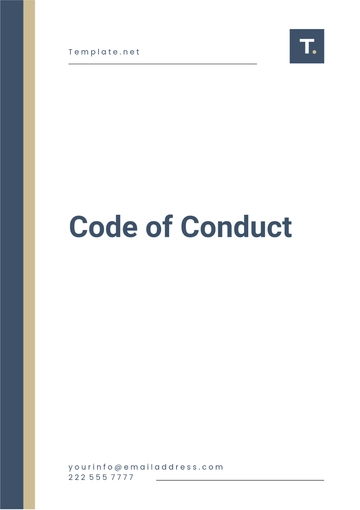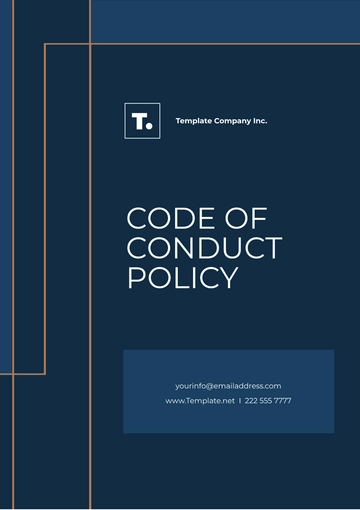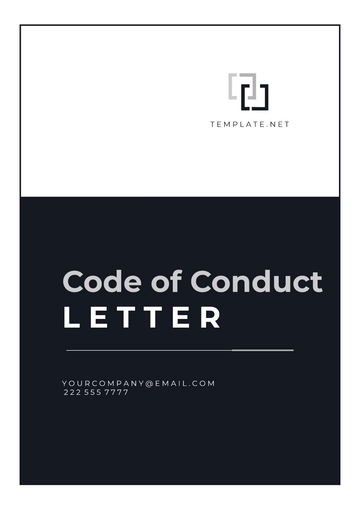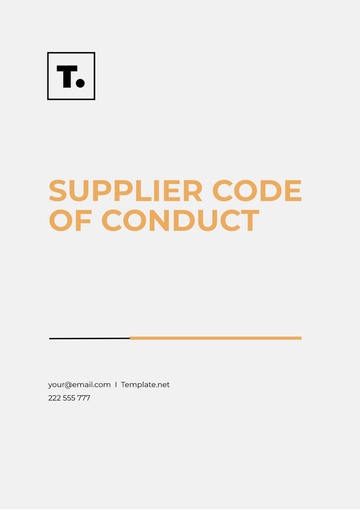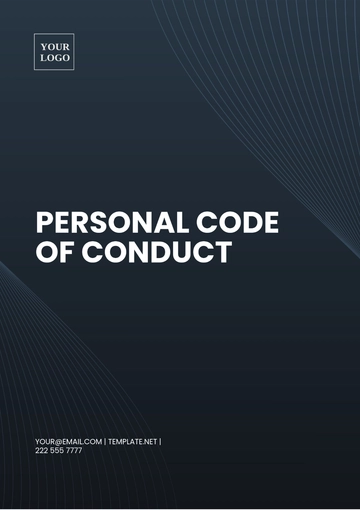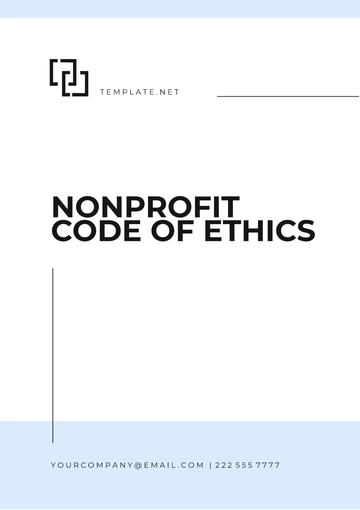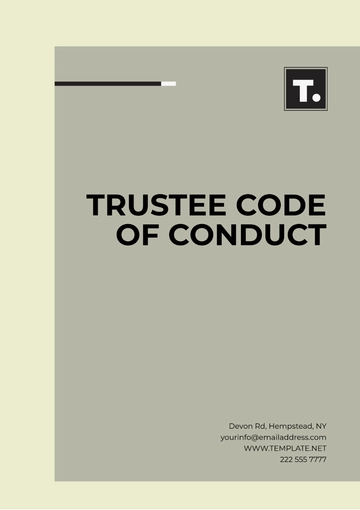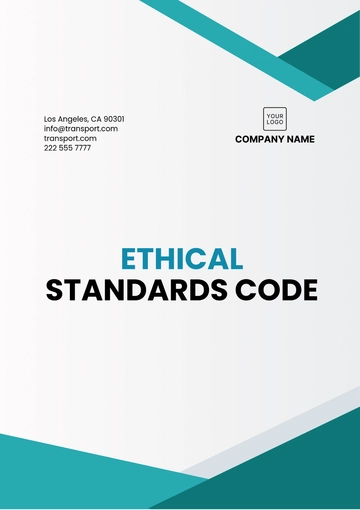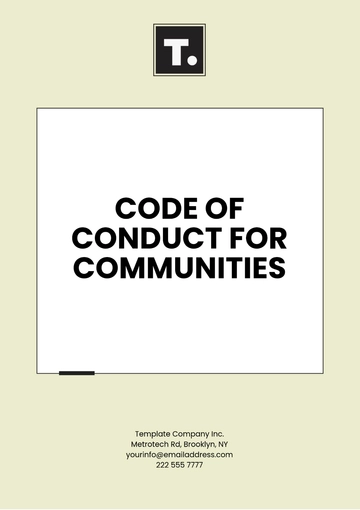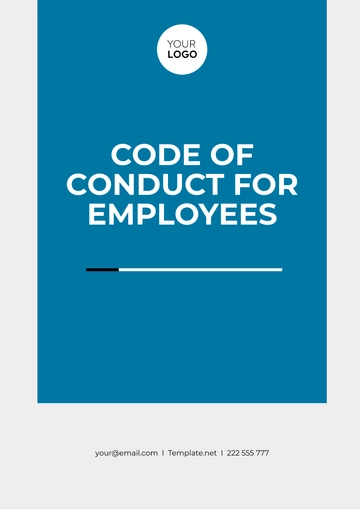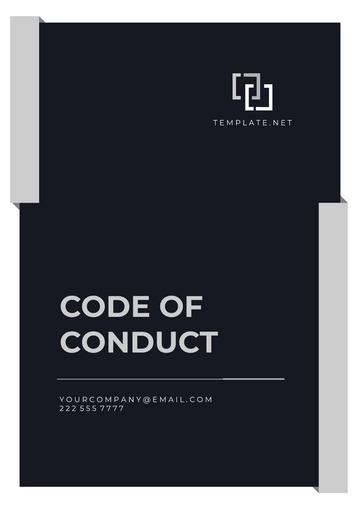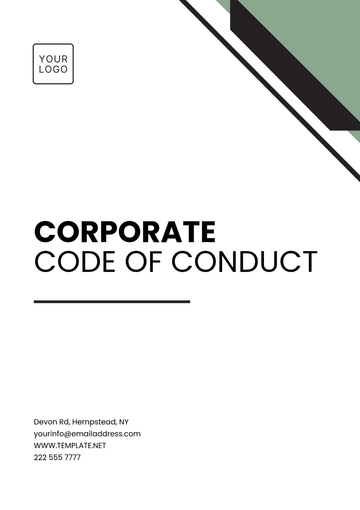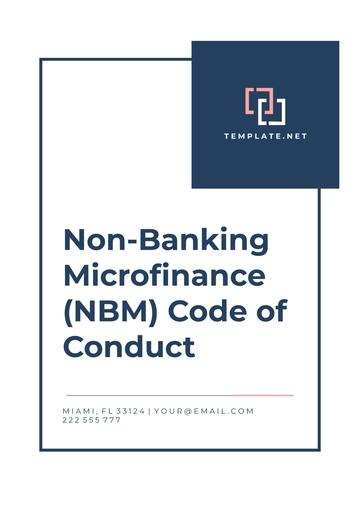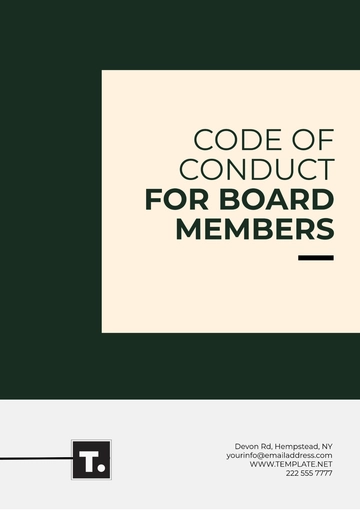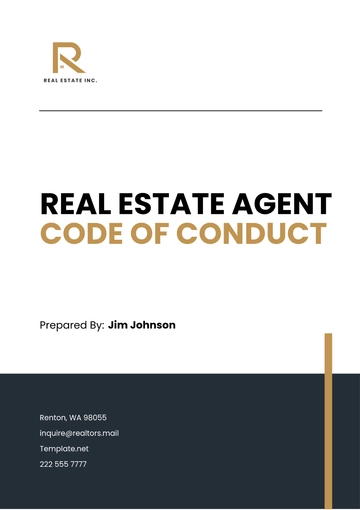Free Code of Conduct for Directors of Non-Profit Corporation

I. Introduction
The Board of Directors of [Your Company Name] (the "Organization") recognizes the critical role that ethical conduct plays in fulfilling the Organization's mission and maintaining public trust. As stewards of the Organization's resources and reputation, directors are expected to adhere to the highest standards of integrity, honesty, and accountability. This Code of Conduct outlines the ethical principles and guidelines that directors are obligated to uphold in their service to the Organization.
A. Purpose
The purpose of this Code of Conduct is to establish clear expectations for directors regarding ethical standards, principles, and guidelines that govern their conduct while serving on the Board of Directors of [Your Company Name] It aims to promote transparency, accountability, and proper governance practices to safeguard the Foundation's integrity and further its mission.
B. Scope
This Code of Conduct applies to all directors of [Your Company Name], including both voting and non-voting members of the board. It encompasses all activities, decisions, and interactions undertaken by directors in their capacity as representatives of the Foundation. Directors are expected to familiarize themselves with this Code and adhere to its provisions throughout their tenure on the board.
II. Ethical Standards
Integrity: Directors shall act honestly, fairly, and in good faith in all dealings on behalf of the Organization. They shall avoid conflicts of interest and refrain from engaging in any activity that may compromise their objectivity or independence.
Confidentiality: Directors shall respect the confidentiality of privileged information entrusted to them by the Organization and refrain from disclosing such information without proper authorization, except when required by law.
Fiduciary Duties: Directors shall fulfill their fiduciary duties of care, loyalty, and obedience to the Organization's mission. They shall exercise prudence, diligence, and sound judgment in making decisions that affect the Organization's operations, finances, and stakeholders.
III. Compliance with Laws and Regulations
Directors shall comply with all applicable laws, regulations, and legal obligations governing the Organization's activities, including but not limited to tax laws, reporting requirements, and regulations specific to the non-profit sector.
IV. Transparency and Accountability
Transparency: Directors shall promote transparency in the Organization's operations and decision-making processes. They shall ensure that relevant information is readily accessible to stakeholders and that communications are clear, accurate, and timely.
Accountability: Directors shall hold themselves and their fellow directors accountable for their actions and decisions. They shall participate actively in board meetings, committees, and other governance activities, and they shall be
open to constructive feedback and evaluation.
V. Proper Governance Practices
Board Responsibilities: Directors shall understand and fulfill their roles and responsibilities as members of the Board of Directors. They shall actively contribute to the formulation of the Organization's strategic direction, policies, and objectives.
Board Composition and Independence: Directors shall strive to maintain a diverse and independent board that reflects the Organization's mission and values. They shall disclose any relationships, affiliations, or interests that may impact their independence or ability to fulfill their duties objectively.
VI. Enforcement and Reporting
Compliance Monitoring: The Board of Directors shall establish mechanisms for monitoring compliance with this Code of Conduct and addressing any violations or concerns raised by directors, staff, volunteers, or stakeholders.
Reporting Violations: Directors who become aware of any potential violations of this Code of Conduct shall promptly report such violations to the Board Chair or the designated ethics officer for investigation and appropriate action.
VII. Conclusion
This Code of Conduct is a testament to the Organization's commitment to ethical governance, integrity, and accountability. By adhering to these principles and guidelines, directors can uphold the Organization's reputation, advance its mission, and serve the best interests of its stakeholders.
- 100% Customizable, free editor
- Access 1 Million+ Templates, photo’s & graphics
- Download or share as a template
- Click and replace photos, graphics, text, backgrounds
- Resize, crop, AI write & more
- Access advanced editor
Introducing the Code of Conduct for Directors of Non-Profit Corporation Template, exclusively crafted by Template.net. This meticulously designed resource offers a comprehensive guide for directors, ensuring adherence to ethical standards and governance principles. Fully editable and customizable, it empowers directors to tailor policies to their organization's needs. Accessible through our intuitive Ai Editor Tool, streamline governance effortlessly.
